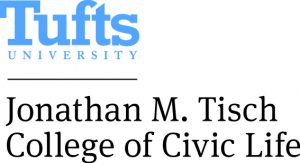Author Archives: Peter Levine
Multiracial democracy
The “North Star” of the Tisch College of Civic Life at Tufts University is “building robust, inclusive democracy for an increasingly multiracial society.” This ideal combines: A commitment to democratic forms of governance; A recognition of racial inequity as a … Continue reading
Democracy
The root of the word “democracy” is rule by the people. Almost all definitions emphasize that the individuals who are part of “the people” should have equal power over important decisions. That is what it means for the people, instead … Continue reading
Republicanism
Recent political theorists have retrospectively categorized some historical authors as “republicans.” Their lists of authors vary, but they typically include Cicero, Machiavelli, and John Adams, among others. Melvin Rogers (2020) argues that Black American thinkers before the Civil War (notably, … Continue reading
Intergroup contact
In 1954, Gordon Allport proposed that prejudice (particularly racial prejudice) may be reduced by equal status contact between majority and minority groups in the pursuit of common goals. The effect is greatly enhanced if this contact is sanctioned by institutional … Continue reading
Motivated reasoning
People tend to prefer, recall, and emphasize facts that support ideas they already hold, and they doubt or marginalize facts that complicate or challenge those ideas. For example, as people obtain more education, their opinions of climate change correlate more … Continue reading
Authorship and contact information
At its launch (January 2022), this site has essentially been written by Peter Levine, the Academic Dean and professor in Tufts University’s Jonathan M. Tisch College of Civic Life. He is solely responsible for any errors or other issues. Over … Continue reading
Exit, Voice and Loyalty
In Exit, Voice and Loyalty (1970), Albert O. Hirschman argues that people who are dissatisfied with groups of all kinds have two basic choices: Exit: Leaving the group. Then they do not have to put up with it or continue … Continue reading
Assessing SPUD (Scale, Pluralism, Unity, Depth)
Background Whether you’re building a social movement, organization, network, or media platform, you should strive for SPUD: Scale: You need a lot of people, at least relative to the size of the community that you are trying to influence. For … Continue reading
Public Work
Harry Boyte defines public work as “self-organized efforts by a mix of people who solve common problems and create things, material or symbolic, of lasting civic value” (Boyte 2011). Public Work disputes the standard definition of “civic engagement” as activities … Continue reading
Gender
Dictionaries currently define “sex” as a biological category–connected to “reproductive organs and structures”–and “gender” as the “behavioral, cultural, or psychological traits typically associated with one sex” in a specific context (Miriam-Webster). Thus what gender means varies by culture and is … Continue reading

